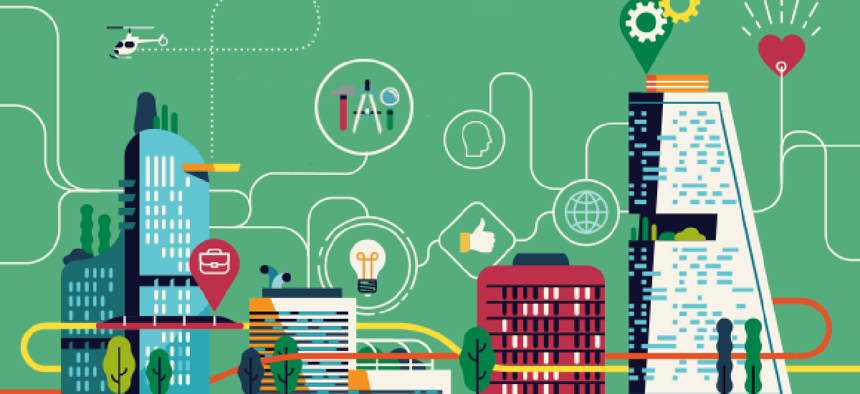How cities and counties are approaching 'smart' purchasing


Connecting state and local government leaders
A new report makes sense of how local governments are adapting to the fast-changing world of big data, the internet of things and other smart-city technologies.
What: A report from Deltek’s GovWin+Onvia, titled “Smart Cities and Counties: Technology Adoption and Smarter Solutions in Local Government.”
Why: As the smart city movement gains momentum, the ecosystem of products and services designed to support it is exploding. This report details local governments' buying decisions on "nearly 300 different smart solutions" and seeks to make sense of purchasing trends. The report analyzes three years of purchasing data to support its findings.
Findings: The report profiled five categories of smart purchases:
- Transportation -- traffic management, mobile ticketing and location services.
- Emergency response -- emergency and safety services and disaster planning tools.
- Big data resources -- hardware, software and cloud services for managing large datasets and business intelligence.
- Citizen engagement – video tools, customer relationship management software, website design and teleconference systems.
- Connected facilities – networking equipment, CCTV services, telephone systems and wireless equipment.
Cities consistently purchased more than counties across all five categories. Overall, "cities represented the majority (59%) of purchases … with around 43,500 total purchase occasions versus around 30,600 for the counties." The gap between city and county purchases was greatest in the transportation and connected facilities categories.
Additionally, the report ranked the top 50 cities and counties by total smart purchases. While larger populations areas (New York City and Los Angeles County) unsurprisingly topped the lists, smaller cities like Columbus, Ohio, and Memphis, Tenn., outpaced much larger metropolitan areas like Chicago and Houston. The county rankings found similar patterns, showing that the adoption still varies dramatically from one local government to the next.
Takeaway: "The growth rates for smart purchases at the city and county levels averaged 7% per year and ranged from 3% to 10%. In contrast, the benchmark growth rate for the entire IT/telecom category was 4.3%."
More: Read the full report here.

NEXT STORY: Florida Is The Latest Republican-Led State To Adopt Clean Needle Exchanges




